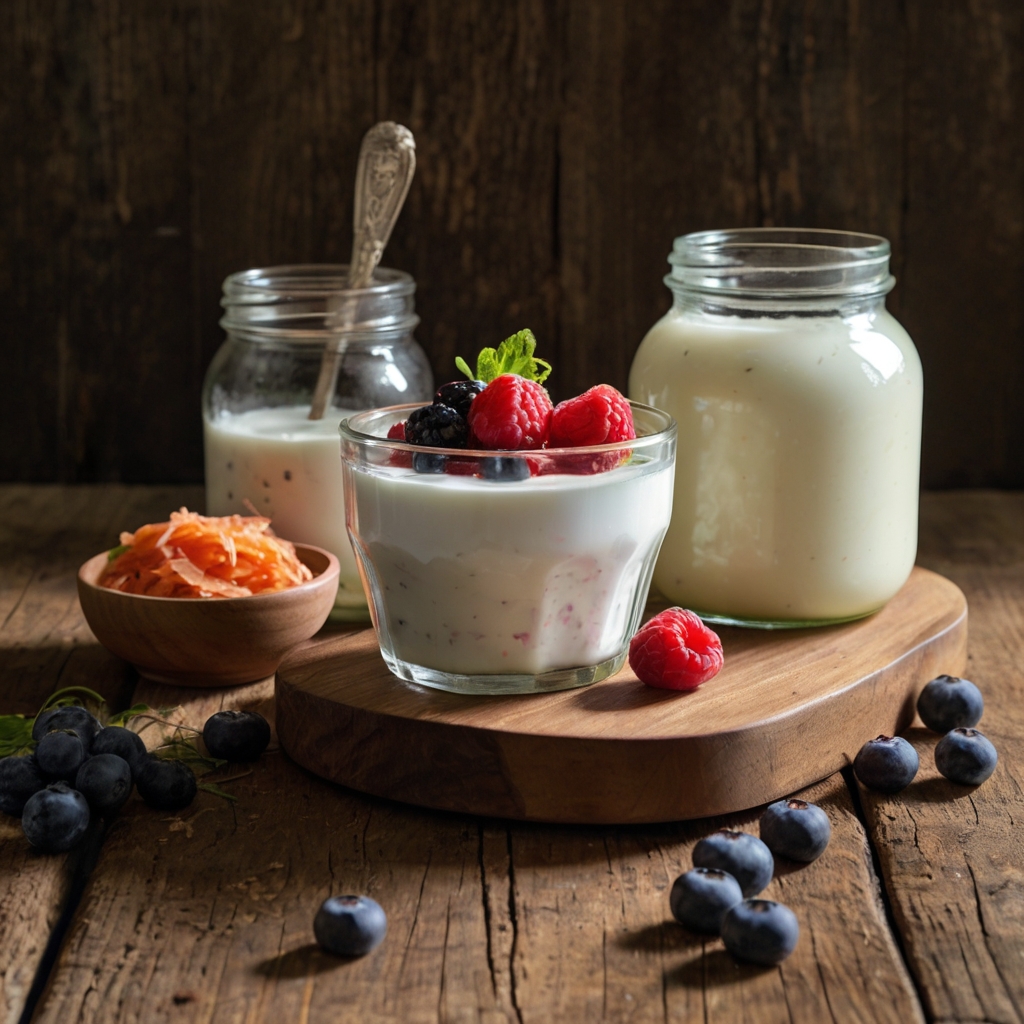Gut health is pivotal for overall well-being, influencing everything from digestion to immune function and even mental health. One of the most effective ways to support a balanced gut microbiome is by incorporating probiotics into your diet. This guide will explore how to add these beneficial bacteria to your meals, the best probiotic-rich foods, and tips to maximize their health benefits.
What Are Probiotics?
Probiotics are live bacteria and yeasts that are good for your digestive system. Often called "good" or "friendly" bacteria, they help maintain a healthy gut microbiome. When you incorporate probiotics into your diet, you support the growth of beneficial gut flora that can improve digestion, reduce inflammation, and boost immune health.
Why Incorporating Probiotics Is Essential for Health
Understanding how to incorporate probiotics into your diet is more than just a dietary trend; it's a health necessity. Probiotics help balance the gut, which affects the absorption of nutrients, the prevention of harmful bacterial growth, and even mood regulation.
Benefits of Probiotics
1. Improved Digestion Probiotics play a crucial role in breaking down food, which leads to better nutrient absorption and overall digestive health. They can also help alleviate digestive issues like bloating, gas, and irritable bowel syndrome (IBS).
2. Enhanced Immune Function A significant portion of the immune system resides in the gut. By incorporating probiotics into your diet, you enhance your body's ability to fight off infections and illnesses.
3. Mental Health Support Recent research has linked gut health to brain health, coining the term "gut-brain axis." A balanced gut microbiome can positively influence mood, stress levels, and mental clarity.
For more on overall health maintenance, don't forget to read The Importance of Hydration for Overall Health, which complements probiotic intake.
Top Foods to Help Incorporate Probiotics into Your Diet
Yogurt
One of the most accessible sources of probiotics is yogurt, particularly those labeled with "live and active cultures." Choose unsweetened, plain yogurt to avoid added sugars that can counteract the benefits.
Kefir
Kefir is a fermented milk drink similar to yogurt but with a tangier flavor and higher probiotic content. It’s an easy way to incorporate probiotics into your diet, especially in smoothies or as a drink on its own.
Fermented Vegetables
Vegetables such as sauerkraut, kimchi, and pickles can be probiotic powerhouses. These foods are rich in lactic acid bacteria, promoting gut health and adding variety to your diet.
Kombucha
This fizzy, fermented tea is packed with probiotics and has grown in popularity for its unique taste and digestive benefits. Drink it as a refreshing alternative to soda.
Miso and Tempeh
These soy-based products are excellent for incorporating probiotics into your diet, especially in Asian-inspired dishes. Miso soup or stir-fried tempeh are tasty options to support gut health.
Easy Ways to Incorporate Probiotics into Your Daily Routine
Start Your Day with Probiotic-Rich Breakfasts
Incorporate probiotics into your diet by beginning the day with a bowl of yogurt topped with fruits and a sprinkle of flaxseeds. Add a small glass of kefir or a kombucha shot as a quick boost.
Include Fermented Foods in Your Meals
Pair lunch or dinner with a side of sauerkraut or kimchi. These fermented vegetables can elevate a salad or be enjoyed as a topping for your main dish.
Blend Smoothies with Probiotic Ingredients
Blend a smoothie using probiotic-rich yogurt or kefir as the base, adding fruits like bananas and berries for additional fiber and vitamins.
Snack Smart with Probiotic Options
Opt for miso soup or tempeh stir-fry as a snack or light meal to help maintain probiotic intake throughout the day.
Tips for Maximizing Probiotic Benefits
1. Combine with Prebiotics Prebiotics are non-digestible fibers that feed probiotics and help them flourish. Foods like garlic, onions, bananas, and oats are great prebiotic sources. Pairing them with probiotics can enhance gut health more effectively.
2. Stay Hydrated Hydration is vital for nutrient absorption and digestive health. To support the effectiveness of incorporating probiotics into your diet, make sure you drink plenty of water throughout the day. Learn more about its significance in The Importance of Hydration for Overall Health.
3. Consume Probiotics Regularly Consistency is key when it comes to reaping the benefits of probiotics. Try to include them in your diet daily for sustained results.
FAQs
What are the best sources of probiotics? Yogurt, kefir, fermented vegetables (like sauerkraut and kimchi), kombucha, miso, and tempeh are excellent sources to incorporate probiotics into your diet.
How much probiotic food should I consume daily? A general recommendation is to include one to two servings of probiotic-rich foods in your diet each day for optimal gut health.
Can I take probiotic supplements instead of foods? Yes, probiotic supplements are an option if incorporating probiotics through food is difficult. However, obtaining probiotics from food ensures additional nutrients and benefits.
Do all yogurts contain probiotics? Not all yogurts contain live probiotics. Look for "live and active cultures" on the label to ensure it contains beneficial bacteria.
Is it safe to consume probiotics every day? Yes, daily consumption of probiotics is generally safe and beneficial for most people. However, those with specific health conditions should consult their doctor.
Are there side effects when starting to incorporate probiotics? Some people may experience mild bloating or gas when they first start consuming probiotics. This is usually temporary and resolves as the body adjusts.
Conclusion: A Balanced Approach to Gut Health
Learning how to incorporate probiotics into your diet can have a transformative impact on your health. From boosting digestion to supporting the immune system and mental clarity, probiotics are a valuable addition to any diet. Remember, maintaining a balanced approach with consistent intake and pairing with prebiotic foods will yield the best results. Always stay hydrated to maximize these benefits—check out The Importance of Hydration for more on this crucial aspect of well-being.



